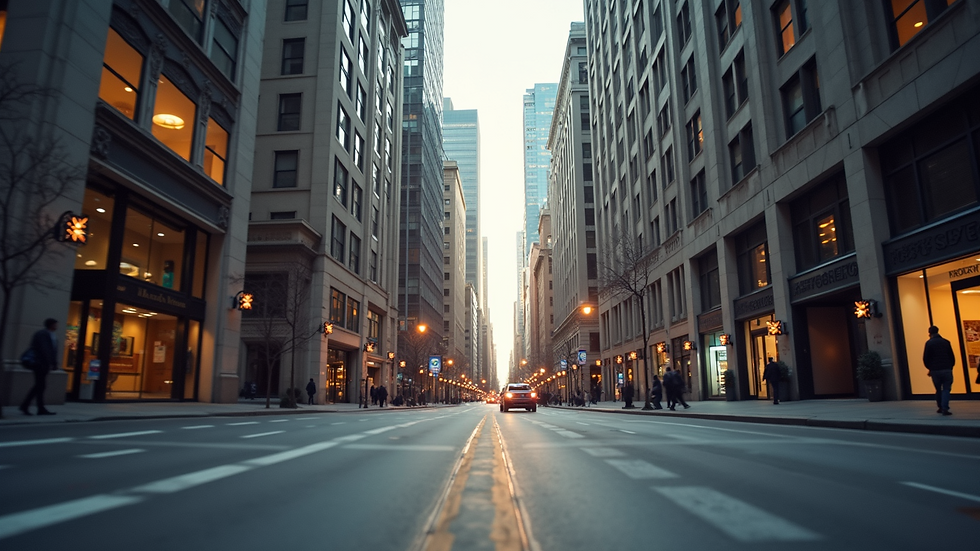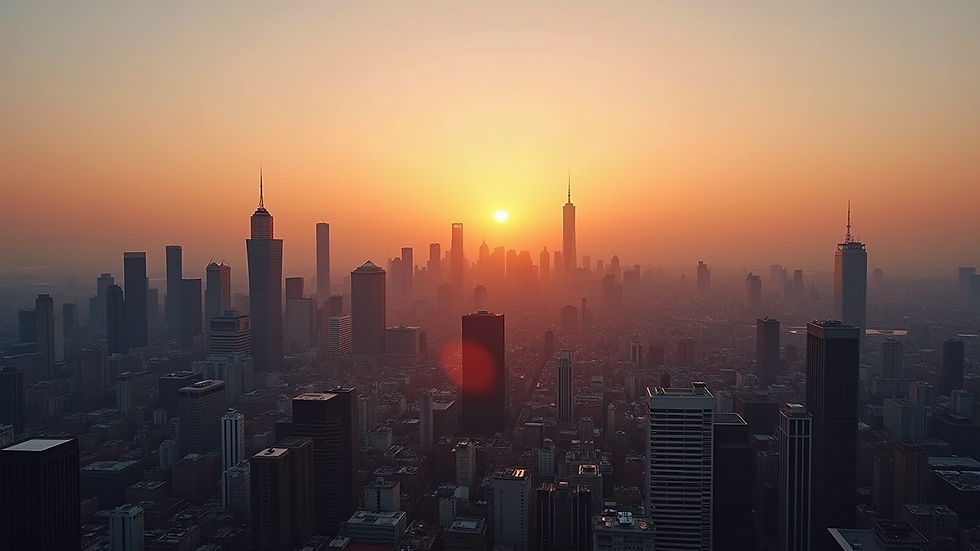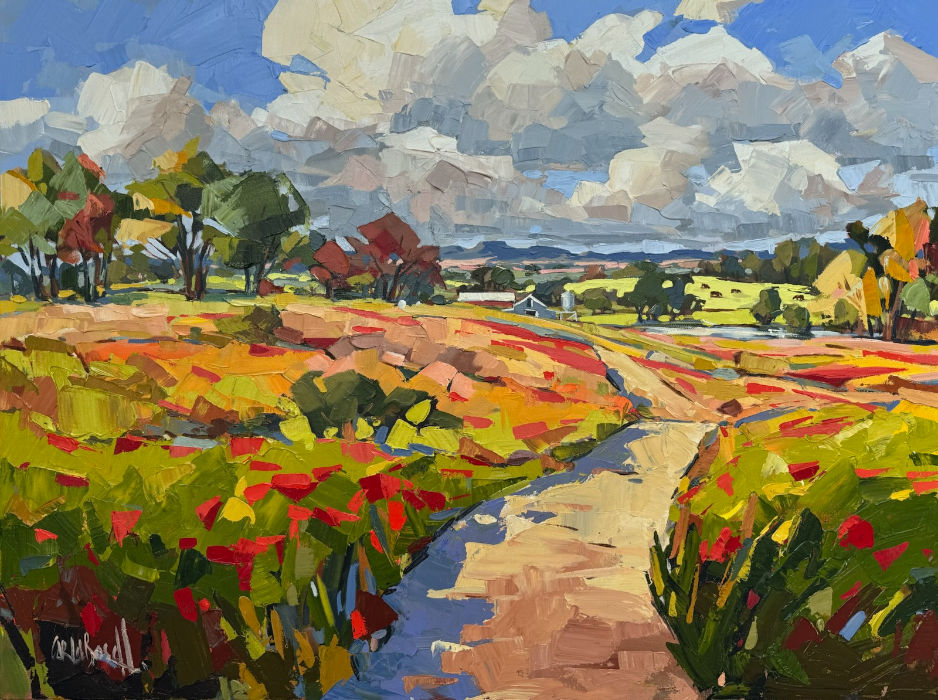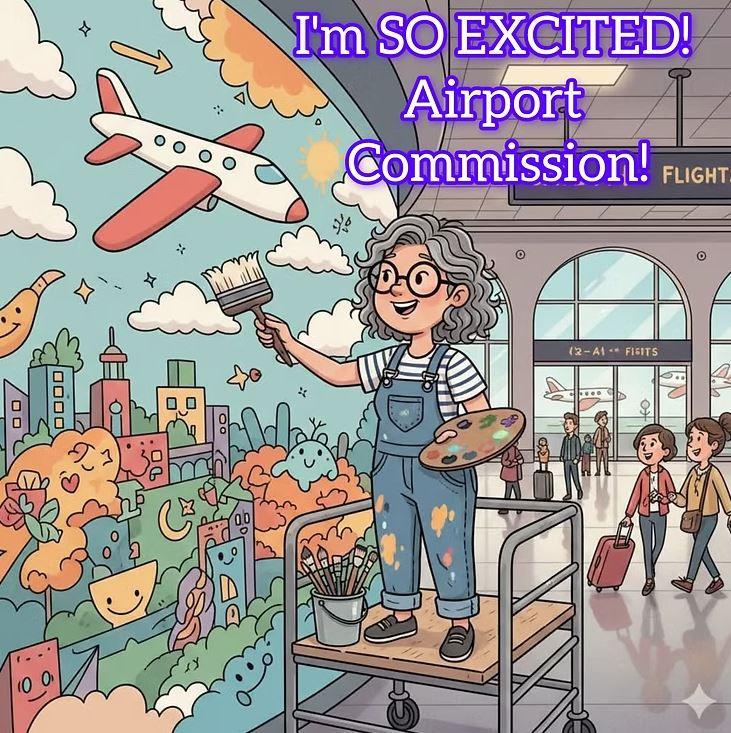Cityscapes and Landscapes in Art
- Mary Katherine Fickel

- Aug 20
- 4 min read

Art has long been a powerful medium to capture the essence of our surroundings. Among the many genres, urban and rural art stand out for their ability to depict the contrasting environments of human life. From the bustling streets of cities to the serene beauty of the countryside, artists have explored these themes through cityscapes and landscapes. This post delves into the fascinating world of these artistic expressions, offering insights, examples, and practical tips for appreciating and creating art inspired by both urban and rural settings.
The Essence of Urban and Rural Art
Urban and rural art represent two distinct yet interconnected worlds. Urban art often focuses on city life, showcasing architecture, street scenes, and the dynamic energy of metropolitan areas. Rural art, on the other hand, captures the tranquility and natural beauty of the countryside, including fields, forests, and pastoral scenes.
Characteristics of Urban Art
Emphasis on buildings, streets, and human activity
Use of bold lines and geometric shapes to reflect architecture
Often vibrant and energetic color palettes
Themes of modernity, movement, and social interaction
Characteristics of Rural Art
Focus on natural landscapes and open spaces
Softer, more organic lines and forms
Earthy and muted color schemes
Themes of peace, nature, and simplicity
Both styles offer unique perspectives and emotional experiences. Urban art can evoke excitement and complexity, while rural art often brings calm and reflection.

Do Cityscapes Count as Landscapes?
This question often arises when discussing art genres. Traditionally, landscapes depict natural scenery such as mountains, rivers, and forests. Cityscapes, however, focus on urban environments. Despite their differences, cityscapes are considered a subcategory of landscapes because they portray a specific type of environment.
Why Cityscapes Are Landscapes
Both depict a broad view of an environment
Both capture the relationship between space and form
Both can convey mood and atmosphere through light and color
Differences to Note
Cityscapes emphasize man-made structures
Landscapes highlight natural elements
Techniques and materials may vary to suit the subject
Understanding this relationship helps artists and viewers appreciate the diversity within landscape art and recognize the urban environment as a valid and rich subject for artistic exploration.

Techniques for Creating Compelling Urban and Rural Art
Whether you are an artist or an art enthusiast, knowing the techniques behind urban and rural art can deepen your appreciation and improve your own creations.
Tips for Painting Cityscapes
Focus on perspective - Use vanishing points to create depth.
Highlight architectural details - Capture windows, doors, and textures.
Play with light and shadow - Reflect the time of day and mood.
Incorporate human elements - Add figures or vehicles to bring life.
Tips for Painting Landscapes
Observe natural light - Notice how it changes throughout the day.
Use layering - Build depth with foreground, middle ground, and background.
Capture textures - Trees, water, and rocks require different brushwork.
Simplify complex scenes - Focus on key elements to avoid clutter.
Recommended Materials
Acrylics and oils for rich color and texture
Watercolors for soft, transparent effects
Charcoal and pencils for detailed sketches
Experimenting with these techniques can help artists convey the unique qualities of both urban and rural environments effectively.

The Role of Cityscapes and Landscapes in Contemporary Art
In modern art, cityscapes and landscapes continue to evolve, reflecting changes in society and technology. Contemporary artists often blend traditional techniques with digital media, photography, and mixed media to create innovative works.
Trends in Urban Art
Street art and murals that engage with community issues
Abstract interpretations of city life
Use of digital tools for hyper-realistic or stylized effects
Trends in Rural Art
Environmental art highlighting conservation
Minimalist and impressionist approaches
Integration of cultural and historical narratives
These trends show how urban and rural art remain relevant and dynamic, offering fresh perspectives on familiar scenes.
Bringing Cityscapes and Landscapes into Your Space
Incorporating art inspired by urban and rural themes can transform your living or working environment. Here are some practical ideas:
Choose art that resonates with your lifestyle - Urban scenes for a modern vibe, rural landscapes for calm.
Mix and match styles - Combine cityscapes and landscapes for visual interest.
Consider scale and placement - Large cityscape paintings can energize a room, while smaller landscapes add subtle charm.
Use art to tell a story - Select pieces that reflect your personal journey or aspirations.
For those interested in exploring beautiful examples, check out this collection of cityscapes and landscapes that capture the essence of both worlds with stunning sunset paintings.
Embracing the Beauty of Urban and Rural Art
Art inspired by urban and rural environments offers a window into the diverse experiences of life. Whether through the intricate details of a city street or the sweeping vistas of the countryside, these works invite us to see the world from new angles. By understanding the characteristics, techniques, and contemporary trends, anyone can deepen their connection to this vibrant art form and perhaps even create their own masterpieces.
Exploring the interplay between city and nature through art enriches our appreciation of both. So next time you encounter a painting or photograph of a cityscape or landscape, take a moment to reflect on the story it tells and the emotions it evokes. This connection is what makes urban and rural art truly timeless.
Are you looking to start or grow your art collection but unsure where to begin?
Our Free digital Guide to Collecting Art is your ultimate resource! Packed with expert insights, practical tips, and must-know strategies, this guide will help you navigate the art world with confidence—whether you're a first-time buyer or a seasoned collector. Discover how to find artwork that resonates with you, invest wisely, and build a collection that stands the test of time.

Download your free guide today and start your journey toward owning meaningful, investment-worthy art. Plus, explore our carefully curated selection of original artwork on
The Good Art Company where you'll find stunning pieces by talented artists, perfect for your home, office, or collection. Don't miss out—shop art now and bring beauty into your space!
Hi there! I'm MK and thank you for reading Cityscapes and Landscapes in Art



